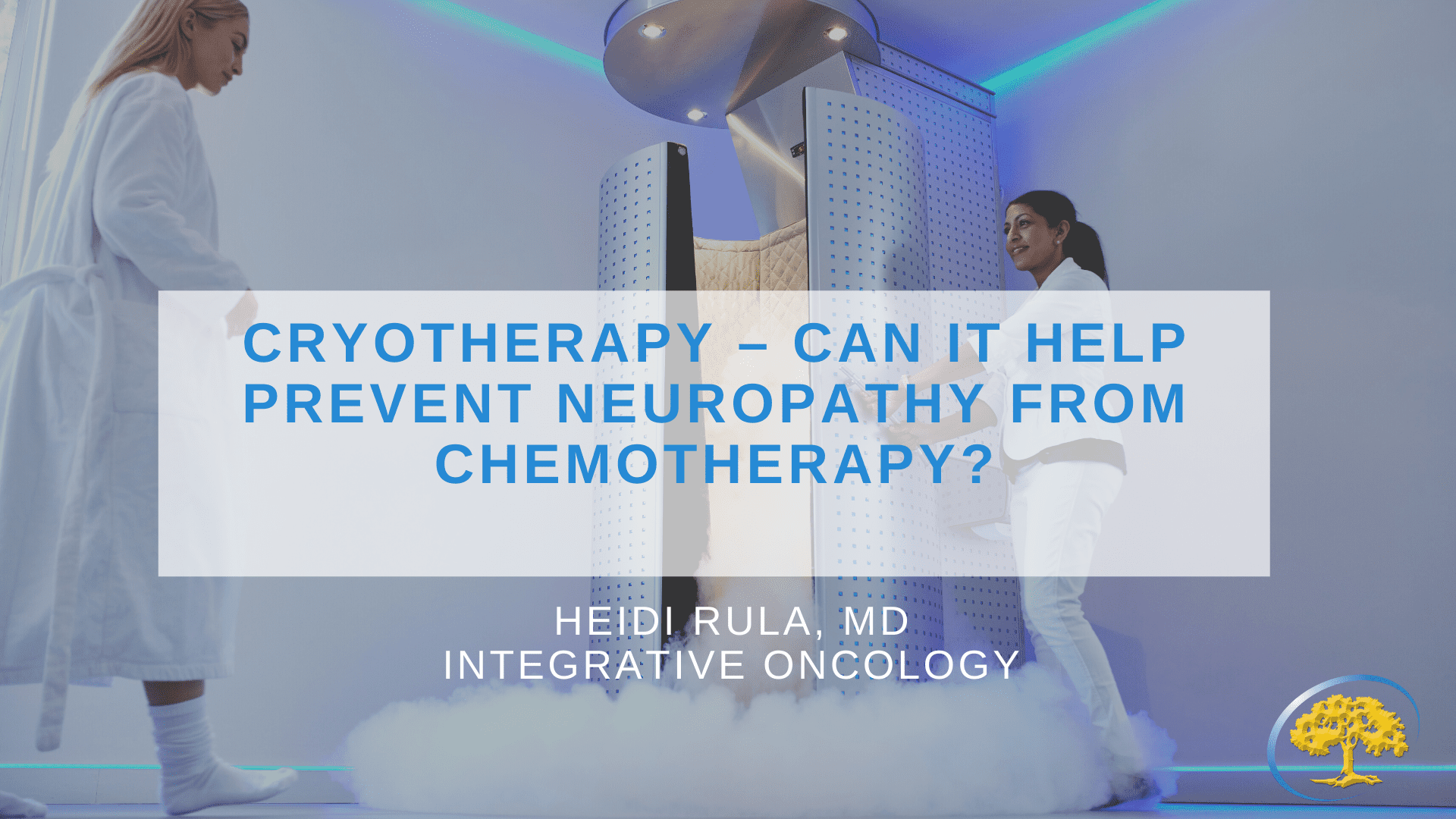
Posted 3 years ago
Cryotherapy – Can it Help Prevent Neuropathy from Chemotherapy?
One of the serious long term side effects of chemotherapy is a condition called chemotherapy induced peripheral neuropathy or CIPN. It is estimated that 30-40 % of patients that receive chemotherapy will have some degree of CIPN. Chemotherapy drugs can cause injury to nerve endings which typically lead to symptoms of burning, numbness, tingling, abnormal sensations and/or pain in the hands and feet. In more severe cases it can cause issues with balance, walking and use of one’s hands. This can be a very debilitating condition for those who are affected by it. There has been a lot of interest in finding ways to help patients prevent CIPN, one therapy that has shown some promise is cryotherapy.
What is Cryotherapy?
Cryotherapy involves applying frozen mittens and socks or cold packs to the hands and feet while a patient is receiving chemotherapy. Generally, cold therapy is started 15 minutes before the chemotherapy drug is started and is stopped 15 minutes after the infusion is complete. The gloves/socks/cold packs need to be changed out every 45 minutes while the infusion is running, which requires having several sets of gloves, socks, or cold packs available to make sure they stay cold throughout treatment. The gloves and mitts can easily be found on the internet at websites like Amazon using the search word “cold therapy mitts and socks” as well as medical supply stores
Why Does it Work?
The theory behind using cold therapy is that when cold is applied to the the hands and feet, it causes the small blood vessels, capillaries, to constrict in these areas. When capillaries are constricted, less chemotherapy is delivered to the nerve endings in the hands and feet, thereby decreasing the toxic effect these drugs have on nerve endings.
What Does the Research Show?
There have been a number of clinical studies showing that patients who utilized cryotherapy while receiving chemotherapy from the taxane category drugs, like paclitaxel, or platinum-based drugs, like carboplatin, were less likely to develop CIPN and if they did, their symptoms were found to be significantly less than those patients who did not use cryotherapy. In general, most patients tolerate using cryotherapy during treatment with very little adverse side effects.
Patients who are about to start a chemotherapy regimen with a taxane-based or platinum-based drug should strongly consider utilizing cryotherapy during their treatment course. It generally is well tolerated and may limit the serious risk of nerve injury in their hands and feet.
About Heidi Rula, M.D.
Medical Director of the Supportive Care Services Department
Dr. Heidi Rula Joined Ironwood In 2018 To Launch The Integrative Oncology Program. She Is Board Certified In Family Medicine And Fellowship-Trained In Integrative Medicine. Dr. Rula Has Been A Practicing Physician In The Phoenix Area For Approximately 20 Years And Has Been Recognized By Her Colleagues As One Of Phoenix’s “Top Doctors” On Multiple Occasions.
Dr. Rula has played a key role in bringing integrative medicine to the Valley. She served as the medical director of the University of Arizona Integrative Health Center, where she leads a team of physicians and complementary practitioners in a unique model of integrative primary care that she helped to develop along with Dr. Weil and the UA Center for Integrative Medicine.

